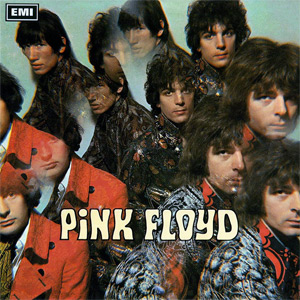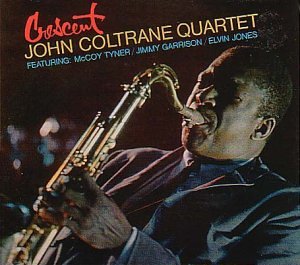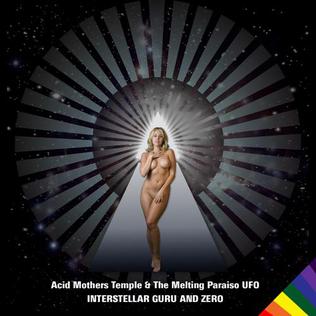
Camper Van Beethoven is a 1986 album by musical group Camper Van Beethoven, released on Pitch-A-Tent. With the six then CVB members joined in the studio by acid-folk eccentric Eugene Chadbourne, the album is arguably the zenith of the band's musical experimentation, with surreal lyrics, backwards, sped-up and slowed down parts; the entire track "Stairway To Heavan" is itself a musical palindrome. A great number of ethnic instruments are used in addition to the usual violin parts played by member Jonathan Segel; the album also features pedal steel, banjo, tablas and sitar.

The Rocks Crumble is the eighth Jandek album, released as Corwood 0746. It is his third release of 1983, and is the first Jandek album to feature extensive use of drums and electric guitar. It was reissued on CD in 2001.

The Piper at the Gates of Dawn is the debut studio album by English rock band Pink Floyd, released 5 August 1967 by EMI Columbia. The only album made under founding member Syd Barrett's leadership, it takes its title from chapter seven of Kenneth Grahame's 1908 novel The Wind in the Willows, which refers to the nature god Pan, and was recorded at EMI Studios in London from February to May 1967 with producer Norman Smith. The band at the time consisted of Syd Barrett, Nick Mason (drums), Roger Waters, and Richard Wright. Barrett also served as the band's primary songwriter, though two tracks on the album are credited to the band collectively and one track was written by Waters. The album was produced by Norman Smith, who would go on to produce two more albums for Pink Floyd.

A Nice Pair is a compilation album by Pink Floyd, re-issuing their first two albums—The Piper at the Gates of Dawn and A Saucerful of Secrets—in a new gatefold sleeve. The album was released in December 1973 by Harvest and Capitol in the United States and the following month in the United Kingdom by Harvest and EMI. It reached number 36 in the US Billboard album charts, and was certified gold by the Recording Industry Association of America (RIAA) in March 1994.

London '66–'67 is an EP and film of Pink Floyd music, containing two "lost" tracks—an extended version of "Interstellar Overdrive" and a previously unreleased track "Nick's Boogie". These tracks were originally recorded for Peter Lorrimer Whitehead's film Tonite Lets All Make Love in London in 1967, and the former appeared in edited form on the soundtrack album. Originally released in full on the 1990 See for Miles Records UK reissue of the soundtrack album, they were the earliest Pink Floyd recordings available commercially before the limited release of 1965: Their First Recordings in 2015.
Gregg Bendian is an American jazz drummer, percussionist, pianist, and composer.

Tonite Lets All Make Love in London is a soundtrack album released on LP in 1968, for the 1967 documentary film of the same name, made by Peter Whitehead about the "swinging London" scene of the sixties. The film consists of a series of psychedelic performances and interviews and features live performance by Pink Floyd, together with footage of John Lennon, Yoko Ono, Mick Jagger, Vanessa Redgrave, Lee Marvin, Julie Christie, Allen Ginsberg, Eric Burdon, Michael Caine and many others attending one of the band's concerts.
Goldenboy is an indie rock band from Los Angeles, California.

Electroretard is the thirteenth album by the Melvins, which was released in 2001 through Man's Ruin Records. The album contains an experiment in backmasking, three covers and four reworked versions of old Melvins songs. Though released on CD, it was going to see an LP release, but Man's Ruin closed beforehand. It was later re-issued on June 2, 2015 together with The Bulls & the Bees EP via Ipecac Recordings.

The 1967 Singles Sampler, or 1967: The First Three Singles, is a compilation album by English rock band Pink Floyd, released in 1997 as a limited edition CD to commemorate the 30th anniversary of the band.

"Interstellar Overdrive" is an instrumental composition written and performed by Pink Floyd. The song was written in 1966 and is on their 1967 debut album, The Piper at the Gates of Dawn, clocking in at almost ten minutes in length.

Crescent is a 1964 studio album by jazz musician John Coltrane, released by Impulse! as A-66. Alongside Coltrane on tenor saxophone, the album features McCoy Tyner (piano), Jimmy Garrison and Elvin Jones (drums) playing original Coltrane compositions.

Interstellar Space is a studio album by American jazz saxophonist John Coltrane, featuring drummer Rashied Ali. It was recorded in 1967, the year of his death, and released by Impulse! Records in September 1974.

"Arnold Layne" is the debut single released by the English rock band Pink Floyd on 10 March 1967, written by Syd Barrett.
"Astronomy Domine" is a song by the English rock band Pink Floyd. The song, written and composed by the original vocalist/guitarist Syd Barrett, was the first track on their first album, The Piper at the Gates of Dawn (1967). The lead vocal was sung by Barrett and the keyboard player Richard Wright. Its working title was "Astronomy Domine ". "Domine" is a word frequently used in Gregorian chants.

Down in a Mirror: A Second Tribute to Jandek is a tribute album compiled by Moscow, PA-based independent record label Summersteps Records, released as a follow-up to the label's first Jandek tribute, Naked in the Afternoon. As with Naked in the Afternoon, Down In A Mirror features cover versions of songs by the reclusive avant-folk/blues singer/songwriter Jandek. Some of the artists are members of the Summersteps roster or fans forming one-time combos to participate on the album, but the album also features contributions from Wilco's Jeff Tweedy, Six Organs of Admittance, The Mountain Goats, Kawabata Makoto of Acid Mothers Temple, Lewis & Clarke and Okkervil River.

Interstellar Low Ways is an album recorded by the American jazz musician Sun Ra and his Myth Science Arkestra, mostly recorded in Chicago, 1960, and probably released in 1966 on his own Saturn label. Originally titled Rocket Number Nine, the album had acquired its present name, and the red-on-white sleeve by Claude Dangerfield, by 1969. The album is known particularly for the two songs featuring space chants - Interplanetary Music and Rocket Number Nine Take off for the Planet Venus - that would stay in the Arkestra's repertoire for many years;
'Rocket Number Nine points toward the music that the Arkestra would be playing on the lower East Side of New York City. The tenor sax solo isn't the work of John Coltrane in 1962, but of John Gilmore in 1960. And not even Ornette Coleman's bassists were playing like Ronnie Boykins at this date.' Robert Campbell

Interstellar Guru and Zero is an album by Acid Mothers Temple & The Melting Paraiso U.F.O., released in 2009 by Homeopathic Records.
Violeta de Outono is a Brazilian psychedelic/progressive rock band from São Paulo. Heavily influenced by The Beatles, The Rolling Stones, Pink Floyd, Led Zeppelin and Gong, they were originally a post-punk band with some psychedelic elements intertwined, but would gradually drop their post-punk influences and add more prog elements to their sonority as time went by.

Interstellar Skeletal is the fourth studio album by the American psychedelic rock band Weird Owl, released by A Recordings, Ltd. on May 25, 2015. The album was ranked as the 11th best psychedelic record of 2015 by Redefine magazine.
















